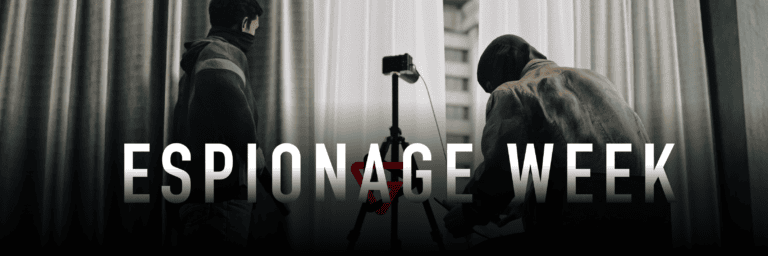
At Grey Dynamics, our focus is intelligence. It’s in our very name – a homage to grey zone warfare and conflict inherent to the practice. Intelligence encompasses a diverse range of disciplines, including collection and analysis, to produce actionable intelligence. It’s not just a product but a dynamic process, involving covert actions and counterintelligence operations. Amidst this complexity, intelligence operates in a mutually beneficial partnership, blending various disciplines into a symbiotic relationship.
This week, we’re pivoting our focus to delve into a singular aspect of the intelligence discipline: espionage.
Indeed, the collection of reports and articles published each day will have a specific connection to the art of espionage. History, current events, and critical analysis await.
But first, it would be helpful for us to define what we mean by espionage, as it, like intelligence itself, is a term that is often used without its proper context.
1. Understanding Espionage
Espionage is the art of spying. If we are trying to be brief, that is the most simplistic way of defining it. Indeed, it is the quintessential intelligence practice. The most dramatised element of intelligence throughout film, television, and literature. The spy.
To be more precise, it is the act of using spies – i.e., intelligence officers, agents – to collect secret information that is delivered to a government or other entity. What’s more, that information is otherwise inaccessible to the collector. Some definitions include the aspect of transferal as well. Think the hallmark names of double agents and whistleblowers, such as Aldrich Ames and Chelsea Manning. (source)
As such, espionage is primarily concerned with the collection side of intelligence. And, it comes in various forms. Cyber espionage focuses on information acquisition through the Internet of Things. Industrial and economic espionage deal with the theft of trade secrets and information that can give a competitor, rival, or enemy an upper-hand. And then there is the counterintelligence space, which is how entities prevent espionage, and practitioners learn how to not get exposed.
Spy vs. spy at its finest. Although not without its misconceptions.
1.1 Dispelling Misconceptions: The Reality of Espionage
Like other concepts in intelligence, there are often misconceptions within the public sphere about its true nature. Furthermore, the epistemology of the idea is threatened by misrepresentations and intellectual corrosion. While this brief article will not provide answers to the big questions of the espionage universe, we can identify some considerations.
First, there is the view of espionage being thrilling, or sexy. In some real life cases, sure. In most, not so much. As you will likely read in some of the more historical pieces, the ‘spies’ central to well-known case studies appear to be ordinary people. Unassuming even. Sometimes stealing secrets just isn’t cool, but that doesn’t take away from its relevance and worth to a pursuit of understanding.
Second, the view that it is strictly a government affair. It isn’t. In some forms, there is certainly a higher degree of necessity for a government to be the architect, but the private sector has plenty of its own accounts to draw from.
Third, the view that it is always against the law.
And last, that espionage involves action or combat. It doesn’t. Now, depending on the operation and its level of sensitivity, conflict is possible. Especially when dealing with hostile nations or high security environments. But if done correctly, espionage is hopefully a silent act, and undetected.
2. Overview of Espionage Week
Espionage Week will dive into many corners of espionage. Our writers and analysts have selected some fascinating topics that cover the mundane and borderline cinematic aspects of the form. To this end, here is a breakdown of what to expect throughout the week:
- Monday: Five Eyes vs. China, The 1917 Espionage Act and its Lasting Impact
- Tuesday: The Espionage Impact on the War in Ukraine, the CIA Directorate of Operations, Double Agents
- Wednesday: The Julian Assange Case, Anti-spy Detector: A Cold War Study, ISR & Espionage Aircraft
- Thursday: Israeli Covert Action, A Guide to Cyber Threat Intelligence, Pegasus Spyware, A Guide to Covert Action
- Friday: The Havana Syndrome, Knitting in Espionage
- Saturday: Chinese Agents and Southern U.S. Border, Vienna: City of Spies, False Flag Operations, Animals in Espionage
- Sunday: Iranian Covert Actions in the West, Corporate Espionage, A Guide to Front Organisations
